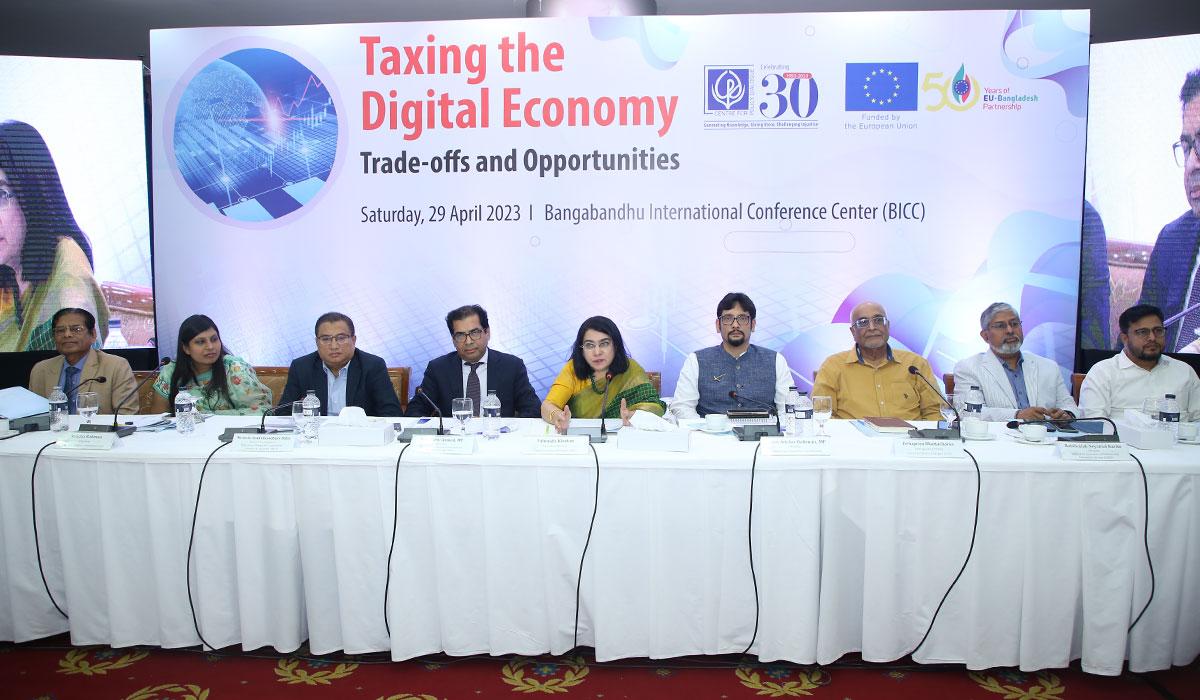
A large part of Bangladesh economy is increasingly coming under digital interface of various types and kinds. In recent years, there has been a proliferation of domestic digital platforms. Thanks to growing domestic e-commerce & f-commerce export-oriented digital activities and interface with the global digital landscape, Bangladesh’s digital economy ecosystem has also been on a fast rise. Digitalization of domestic resource mobilization and taxing of digital economy have gained both importance & prominence in this backdrop. While the digital economy creates options for taxation, the concerned trade-offs involving prospects of nascent sector and developing must also be taken into cognisance.
The Centre for Policy Dialogue, in partnership with the European Union (EU), has organised a dialogue on “Taxing the Digital Economy: Trade-offs and Opportunities” on Saturday 29 April 2023, at Media Bazaar, Bangabandhu International Conference Centre (BICC). The findings of a research study by the CPD to explore the various dimensions of the digital ecosystem in Bangladesh and opportunities of taxing the digital economy was presented at the dialogue. The study came up with several policy recommendations in view of these. The dialogue provided an opportunity to discuss the CPD proposals, validate the findings and get input from relevant stakeholders, who were invited to share their views in this connection.
Mr Kazi Nabil Ahmed, MP, Member, Parliamentary Standing Committee on Ministry of Finance and Member, Parliamentary Standing Committee on Ministry of Foreign Affairs, joined the dialogue as the Chief Guest.
Mr Ahsan Adelur Rahman, MP, Member, Parliamentary Committee on Estimates was also present as the Special Guest.
Mr Mostafa Azad Chowdhury Babu, Senior Vice President, Federation of Bangladesh Chambers of Commerce and Industry (FBCCI) was present as the Guest of Honour.
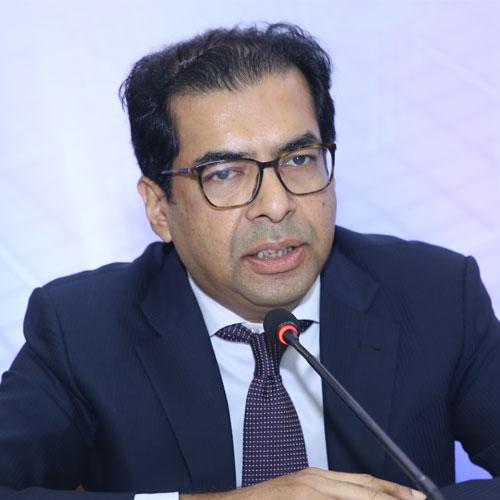
Mr Habibullah Neyamul Karim, Director, of Bangladesh Association of Software and Information Services (BASIS), Mr Mohammad Sahab Uddin, Vice President, of the e-Commerce Association of Bangladesh (e-CAB), and Dr Tanjiba Rahman, Chairman, Bangladesh Freelancer Development Society were present to provide their opinion as the Distinguished Panelists.
Dr Debapriya Bhattacharya offered special remarks at the event.
Professor Mustafizur Rahman, Distinguished Fellow, CPD, delivered Keynote Presentation at the dialogue. The keynote was based on a study which was coauthored by Professor Mustafizur Rahman & Ms Amenda Philomina Purification.
The dialogue was chaired by Dr Fahmida Khatun, Executive Director, CPD.
The dialogue was attended by high-level policymakers, relevant representatives from e-commerce organisations, business process outsourcing companies and freelancers, private sector representatives, and entrepreneurs engaged in e-commerce and e-businesses.
Mr Kazi Nabil Ahmed, MP stated that the digital economy is expanding at a first pace and creating career opportunities for many youths in the country. Many are involved in freelancing, particularly the young generation known as ‘Generation Z’. However, we are not making best use of the possibilities properly as yet. He mentioned that the social media platforms in Bangladesh are growing at an increasing pace creating jobs and income earning opportunities. He stated that while we examine new sources of taxation such as digital economy, we need to also remove inefficiencies in taxation and administration so that we do not lose growth momentum.
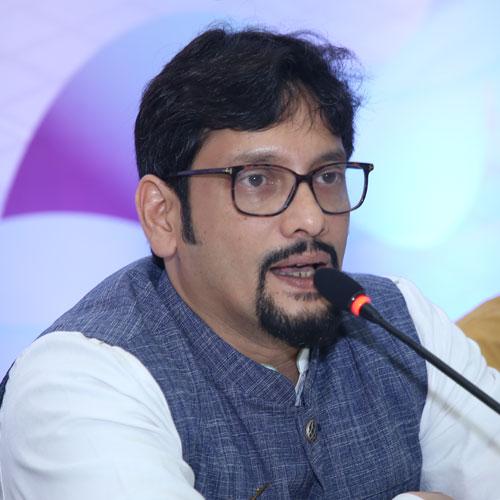
Mr Ahsan Adelur Rahman, MP said there is a clear distinction between traditional and digital economies. The digital economy is just emerging, but opportunities should be leveraged to generate funds for further rapid expansion of the sector. For its successful implementation, the efficiency of the National Revenue Board should be raised. He maintained that we should encourage the digital economy sector by ensuring more secure cyberspace for youths and citizens.
Mr Mostafa Azad Chowdhury Babu felt that to ensure proper tax structure, the transparency of the National Revenue Board should be strengthened and reforms of NBR are a must. It should be more business-friendly and the hassle in paying taxes should be reduced.
Dr Fahmida Khatun, Executive Director, CPD, initiated the dialogue by thanking everyone for their presence and contribution. She mentioned that since Bangladesh’s digital economy is growing, we need to explore possibilities of raising Tax-GDP ratio and internal resources from this segment of the economy. However, she felt that taxation should be rational and be mindful of the growth potentials of the digital economy.
Ms Marga Peteers, Attaché Project Manager – Macroeconomic Analysis, Public Finance Management, Statistics, and Economic Development, Delegation of the European Union to Bangladesh, said that European Union has been providing budget support to the Government of Bangladesh in several areas including public finance management. It is essential to raise efficiency of the public finance management to increase the Tax GDP ratio which is currently lower in Bangladesh. She also added that the EU has focused on four issues while agreeing to support public finance management, in the country including social audit, engagement of MPs in budget process, citizen budget proposal and technical study on taxation. She maintained that though the digital economy is a specific area but significant for the potentials it has in raising the Tax-GDP ratio of Bangladesh.
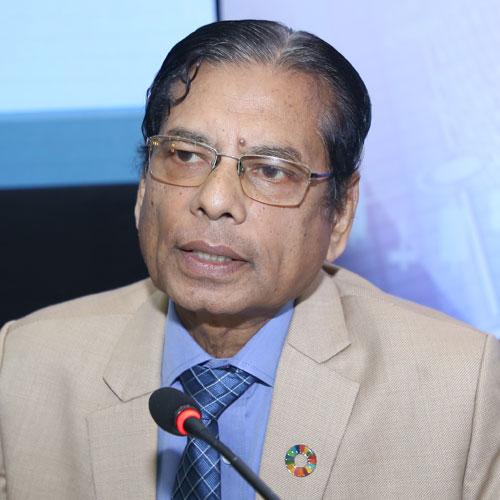
Professor Mustafizur Rahman, Distinguished Fellow, CPD, presented the study’s key findings. He stated that Bangladesh’s digital economy had experienced exponential growth in recent years, both the domestic part and its global interface. However, a large part of it still needs to be brought under the ambit of National Income accounting which offers the potential source of revenue for the country. Policymakers are considering expanding tax base and bring untaxed digital services under taxation. A decision will soon need to be taken as regards income tax exemptions for IT-enabled services. But there are important trade-offs to consider, such as the sustainability and competitiveness of the digital economy.
Professor Rahman noted that the growing presence of multinational companies and their tax practices need careful examination. Bangladesh needs also to monitor the WTO’s decision on ending the moratorium on customs duties on e-transmission, which could have implications for customs duties on imports of digital services. He offered several policy recommendations for digital economy taxation in Bangladesh, including legal, administrative, and technological measures. He suggested introducing sunset clauses, removing loopholes through changes in the laws, removing ambiguities, and examining opportunities to impose taxes on digital services, platforms, and e-commerce businesses. Finally, he emphasized need for the preparedness for signing bilateral taxation treaties. He underscored the need for clearly maintaining developments as regards and global initiatives to tax global digital powerhouses and keep an eye on developments in the WTO.
According to Mr Habibullah Neyamul Karim, the study is significant in local and global contexts. Though people generally think Digital Economy is a separate part of the economy, it is an essential part of the real economy. This study will help mobilise domestic resources in Bangladesh. He concluded his speech by saying that taxing cross-border transactions should also be emphasised in the future.
Mr Mohammad Sahab Uddin noted that Bangladesh should not be focused more on imposing tax in digital platforms but should prioritise how to first develop the digital economy players and then so for taxation. He cited bureaucratic hassles which act as a barrier for new entrepreneurs to pay taxes.
Dr Tanjiba Rahman noted that freelancing should not be looked from taxation point of view, but employement opportunity. Freelancers are already under taxation and they get only 30% of what they actually earn. So, imposing additional tax can be stressful for freelancers and could have a disruptive impact on this potential sector.
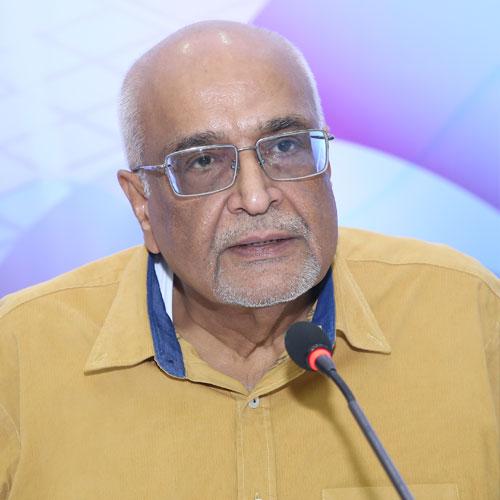
Dr Debapriya Bhattacharya, Distinguished Fellow, CPD, offered three precise recommendations by drawing on the discussion. Firstly, he mentioned that a business model should be developed before taxing the digital economy. For developing the model, five principles should act as guiding principles: transparency, neutrality, fairness, efficiency, and simplicity. Secondly, the framing of the digital economy should be done correctly. E-commerce is one of many parts of the digital economy. Other issues, including IT infrastructure, exchange rate, and quality of human resources, should be considered while framing the digital economy taxation. Finally, he stated that Bangladesh had to agree to many conditionalities when it went for the IMF loan. Digitalisation of the taxation system areas mentioned in the IMF loan programme for progress of taxation. He also mentioned three issues of IMF programme conditions related to the issue of taxing the digital economy, such as tax GDP ratio, expenditure, and the efficiency of the system which should be prioritised for Bangladesh’s own sound marco-economic management.
Dr Nasiruddin Ahmed, Former Chairman of the National Board of Revenue (NBR) observed that some barriers in tax collection should be corrected before taxing the digital economy. Otherwise, it will create a conflict of interest. He felt that the tax process and law should be revised first. Mr Mahbub Ahmed, Former Senior Secretary Finance Division, Ministry of Finance, noted that the study on taxing the digital economy would be helpful for both National Revenue Board and the Ministry of Finance.
A representative from e-CAB obsevered that the process of issuing tax exemption certificates needs to be simplified. The National Revenue Board should take steps to make this process easier. Amiya Prapan Chakra Borty (Arka), Chief Executive Officer, Dhrubotara Youth Development Foundation (DYDF) noted that many e-commerce entrepreneurs live in rural areas. For this reason, any taxation process should be easy and rural youth friendly. Another participant felt that the tax authorities need proper documentation and digital economy actors should learn to address the emerging requirements of the digital economy. Tax policy implementation needs to be made stronger by ensuring enforcement. So, the tax collection process should be fully automated which will make it easier to deal with tax evasion and tax avoidance.

